BMW 1 Series VS Peugeot 3008
BMW 1 Series
The BMW 1 Series stands out with its dynamic design that embodies both elegance and sportiness, making it an attractive choice for urban driving. Its interior offers a premium feel, combining quality materials with the latest in technological features to enhance comfort and connect drivers. Under the bonnet, a range of efficient engines ensures a responsive and enjoyable driving experience, balancing power with practicality.
more informationPeugeot 3008
The Peugeot 3008 is a compact SUV that seamlessly combines sleek design with modern functionality. Its interior offers a sophisticated and comfortable driving experience, characterised by high-quality materials and innovative technology features. With its dynamic performance and stylish aesthetics, the 3008 stands out in the competitive world of family SUVs.
more information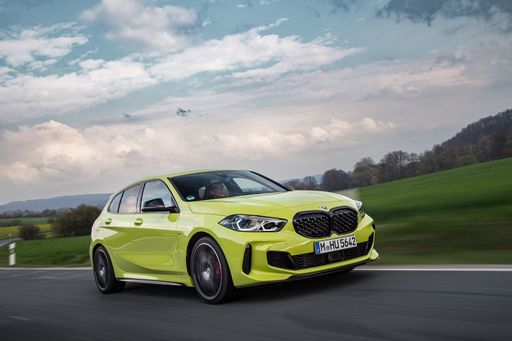 @ press.bmwgroup.com
@ press.bmwgroup.com
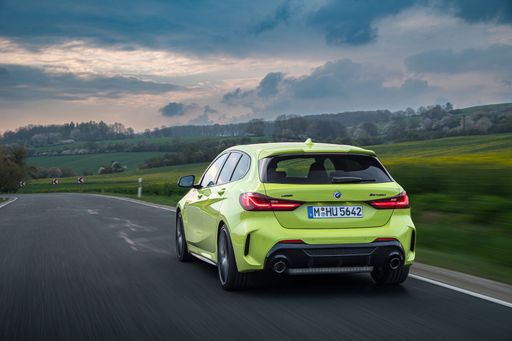 @ press.bmwgroup.com
@ press.bmwgroup.com
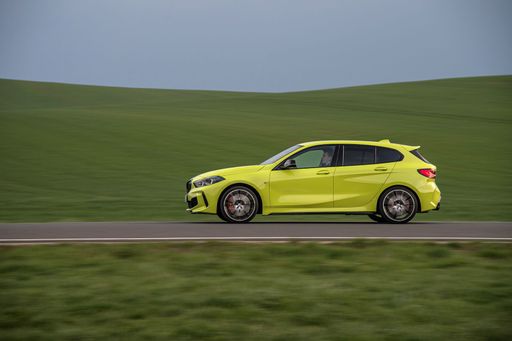 @ press.bmwgroup.com
@ press.bmwgroup.com
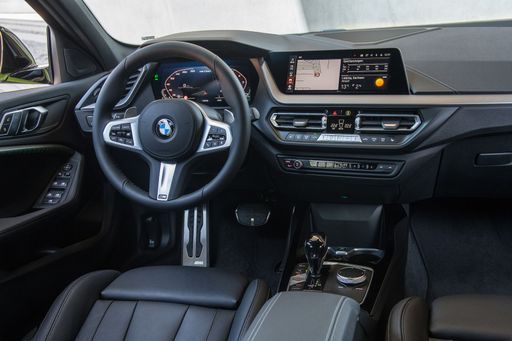 @ press.bmwgroup.com
@ press.bmwgroup.com
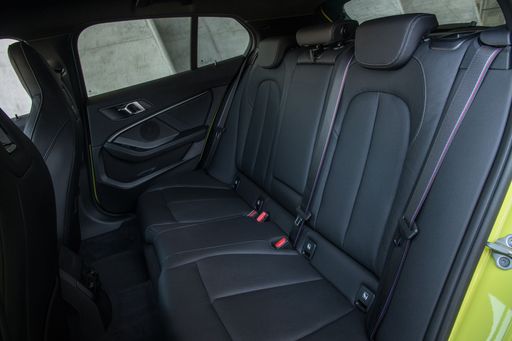 @ press.bmwgroup.com
@ press.bmwgroup.com
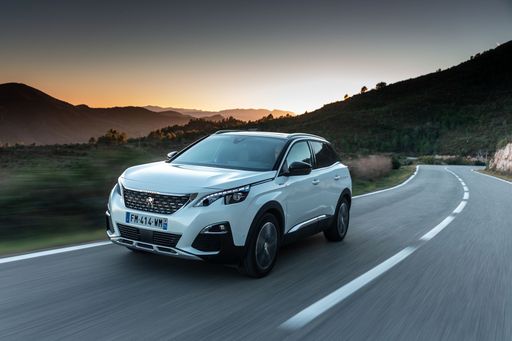 @ media.stellantis.com
@ media.stellantis.com
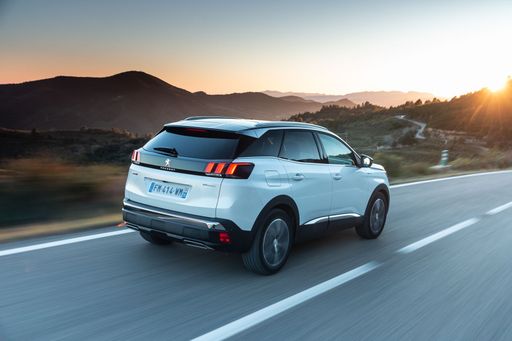 @ media.stellantis.com
@ media.stellantis.com
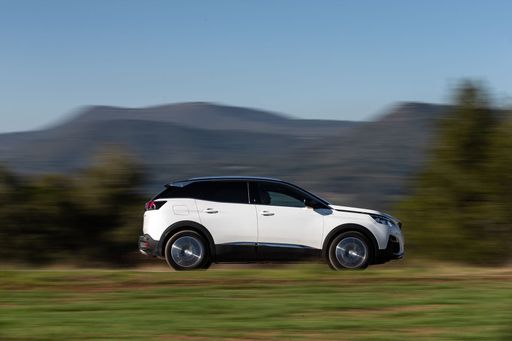 @ media.stellantis.com
@ media.stellantis.com
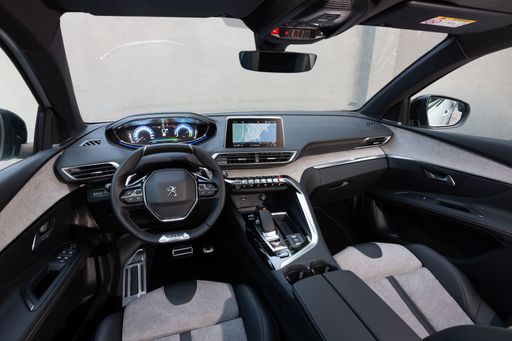 @ media.stellantis.com
@ media.stellantis.com
Costs and Consumption |
|
|---|---|
|
Price
about 28200 - 51000
£
|
Price
about 33600 - 49000
£
|
|
Consumption L/100km
4.3 - 7.6
L
|
Consumption L/100km
0.9 - 5.7
L
|
|
Consumption kWh/100km
-
|
Consumption kWh/100km
17.2 - 17.7
kWh
|
|
Electric Range
-
|
Electric Range
85 - 698
km
|
|
Battery Capacity
-
|
Battery Capacity
17.8 - 96.9
kWh
|
|
co2
112 - 173
g/km
|
co2
129, 19, 0
g/km
|
|
Fuel tank capacity
49
L
|
Fuel tank capacity
55
L
|
Dimensions and Body |
|
|
Body Type
Hatchback
|
Body Type
SUV
|
|
Seats
5
|
Seats
5
|
|
Doors
5
|
Doors
5
|
|
Curb weight
1465 - 1625
kg
|
Curb weight
1648 - 2183
kg
|
|
Trunk capacity
300 - 380
L
|
Trunk capacity
520
L
|
|
Length
4361
mm
|
Length
4542
mm
|
|
Width
1800
mm
|
Width
1895
mm
|
|
Height
1459
mm
|
Height
1641
mm
|
|
Payload
475 - 510
kg
|
Payload
432 - 524
kg
|
Engine and Performance |
|
|
Engine Type
Diesel, Petrol MHEV, Diesel MHEV, Petrol
|
Engine Type
Petrol MHEV, Plugin Hybrid, Electric
|
|
Transmission
Automatic
|
Transmission
Automatic
|
|
Transmission Detail
Automat. Schaltgetriebe (Doppelkupplung)
|
Transmission Detail
Automat. Schaltgetriebe (Doppelkupplung), Reduction Gearbox
|
|
Drive Type
Front-Wheel Drive, All-Wheel Drive
|
Drive Type
Front-Wheel Drive
|
|
Power HP
122 - 300
HP
|
Power HP
136 - 231
HP
|
|
Acceleration 0-100km/h
4.9 - 9.8
s
|
Acceleration 0-100km/h
8.4 - 10.2
s
|
|
Max Speed
210 - 250
km/h
|
Max Speed
170 - 220
km/h
|
|
Torque
230 - 400
Nm
|
Torque
230 - 345
Nm
|
|
Number of Cylinders
3 - 4
|
Number of Cylinders
3 - 4
|
|
Power kW
90 - 221
kW
|
Power kW
100 - 170
kW
|
|
Engine capacity
1499 - 1998
cm3
|
Engine capacity
1199 - 1598
cm3
|
|
Top speed
210 - 250
km/h
|
Top speed
170 - 220
km/h
|
General |
|
|
Model Year
2024
|
Model Year
2024
|
|
CO2 Efficiency Class
D, C, F
|
CO2 Efficiency Class
D, B, A
|
|
Brand
BMW
|
Brand
Peugeot
|
BMW 1 Series
Exploring the BMW 1 Series: A Compact Powerhouse
The latest iteration of the BMW 1 Series continues to set the benchmark for premium compact cars, blending cutting-edge technology and efficient performance. Known for its sporty design and responsive driving dynamics, the BMW 1 Series offers a range of options that cater to varied preferences and needs. Let’s delve into the technical details and innovations that make this vehicle a standout in its class.
Advanced Engine Variants and Performance
Under the hood, the BMW 1 Series offers a varied selection of powertrains, including diesel, petrol mild-hybrid, and pure petrol options. Power outputs range from 150 to an impressive 300 PS, allowing drivers to opt for either efficiency or sheer performance. The utilisation of mild-hybrid technology in some variants ensures a smooth and efficient drive, with increased torque available for dynamic acceleration.
All models come equipped with an Automatic Transmission, more specifically, a double-clutch gearbox for seamless gear transitions, offering a responsive drive whether you're navigating city streets or the open road. The top-of-the-line M135 variant boasts all-wheel drive capability, enhancing traction and control even further.
Efficient and Sustainable Driving
The BMW 1 Series is engineered for efficiency, achieving fuel consumption as low as 4.3 litres per 100 km in some diesel variants, while the petrol models also demonstrate competitive efficiency ratings. In terms of emissions, the range offers CO2 output figures between 112 to 173 g/km, garnering respectable CO2-efficiency ratings. Additionally, the mild-hybrid variants benefit from regenerative braking, which captures energy usually lost during braking and uses it to power the vehicle.
Innovative Technology and Comfort
Step inside the BMW 1 Series and you'll find a driver-focused cockpit outfitted with the latest in automotive technology. The infotainment system is hosted on a high-resolution display, providing easy access to navigation, entertainment, and vehicle settings. Key features like smartphone integration and voice control enhance the connectivity options available, creating a seamless link between driver and machine.
On the comfort front, the BMW 1 Series provides a refined interior experience, with high-quality materials and finishes. There's generous space for up to five passengers, alongside a versatile boot capacity that ranges from 300 to 380 litres, accommodating both daily errands and weekend getaways.
Design and Dimensions
The exterior design of the BMW 1 Series showcases its sporty lineage with a compact and agile silhouette. Measuring 4361 mm in length and 1800 mm in width, it maintains a confident road stance, while its height of 1459 mm contributes to a sleek, aerodynamic profile. Furthermore, the 1 Series is available in several stylistic options, providing aesthetics that can be customised to personal preference, including M Sport packages that introduce more aggressive styling cues.
Conclusion: A Harmony of Performance and Comfort
The BMW 1 Series deftly balances performance, efficiency, and comfort, making it a compelling choice for those in the market for a premium compact car. With its range of powerful engines, state-of-the-art technology, and stylish design, the BMW 1 Series remains a leader in its segment. Whether you prioritise sporty performance or efficient urban commuting, the 1 Series is equipped to deliver beyond expectations.
Peugeot 3008
Introduction to the Peugeot 3008
In the rapidly evolving world of SUVs, the Peugeot 3008 stands out as a prime example of innovative design and advanced technology. Offering a range of powertrains from hybrid to fully electric, the 3008 is tailored to meet the needs of eco-conscious drivers without sacrificing performance or luxury.
Powertrain Options and Performance
The Peugeot 3008 is designed to cater to a variety of driving preferences with its versatile range of powertrains. The options include petrol mild-hybrid, plug-in hybrid, and full electric variants. The power output ranges from a modest 136 PS to a robust 210 PS, providing a performance spectrum to suit both city commuters and long-distance travellers. Notably, the plug-in hybrid variant boasts an impressive electric range of up to 85 km, while the electric version can travel up to 524 km on a single charge, making it ideal for both urban and rural settings.
Driving Dynamics and Efficiency
The 3008's driving dynamics are refined and engaging, supported by its front-wheel-drive configuration and automatic transmission. Depending on the model, the vehicle can accelerate from 0 to 100 km/h in as little as 8.4 seconds, while maintaining an efficient fuel consumption rate of as low as 0.9 L/100km for the plug-in hybrid variant. For the eco-conscious drivers, the electric model offers a consumption rate of 17.7 kWh/100km, and its CO2 emissions range from 0 to 129 g/km, reflecting its commitment to reducing environmental impact.
Design and Comfort
The Peugeot 3008 boasts a modern and sophisticated design that embodies both elegance and functionality. Its expansive interior offers seating for five, complemented by a generous boot capacity of 520 litres. The vehicle's dimensions—4,542 mm in length, 1,895 mm in width, and 1,641 mm in height—ensure ample space and a commanding presence on the road. Additionally, the 3008's array of equipment lines like Allure and GT enhance the driving experience with premium features and luxurious touches.
Innovations and Technology
The Peugeot 3008 is equipped with a suite of cutting-edge technological features designed to enhance the driving experience. The intuitive infotainment system is central to the vehicle's interior, offering seamless connectivity and navigation options. Safety and driver assistance technologies are also prominent, including advanced systems for collision avoidance and parking assistance, ensuring peace of mind on every journey.
Conclusion
In summary, the Peugeot 3008 is a compelling choice for those seeking a versatile and modern SUV. With a range of efficient powertrains, dynamic performance, and luxurious design elements, it caters to a broad spectrum of drivers. Its advanced technological features and commitment to sustainability make the Peugeot 3008 a forward-thinking option in today's automotive landscape.
